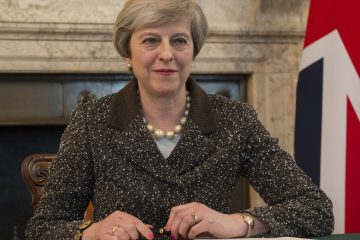
Has the Fixed-term Parliaments Act failed?
On April 19, 2017, parliament voted to endorse the government’s motion to hold a UK general election on 8 June 2017. This was the first time that the provisions of the Fixed-term Parliaments Act (FTPA) were invoked. When the Act was introduced in 2011, the coalition government justified it by arguing that “fixed-term parliaments will have a positive impact on our country’s political system; providing stability, discouraging short-termism, and preventing the manipulation of election dates for political advantage.” Yet, the ease with which Prime Minister Theresa May was able to trigger the early election in light of her 21 point opinion poll lead over Labour over the Easter weekend appeared to cast doubt on its ability to deliver these aims. …
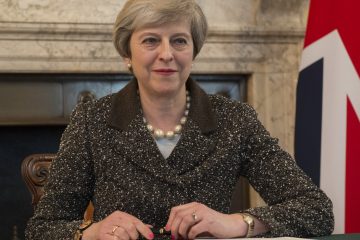
“Strong leadership needed for Brexit negotiations” Will this framing of the early election work for Theresa May?
When Prime Minister Theresa May announced her intention to call a snap election on June 8, she took a political gamble. Two polls over the Easter weekend put the Conservatives 21 points ahead of Labour. Mrs May will be hoping to translate this polling lead into a crushing electoral victory and a personal mandate that will free her from the constraints of working with her current slim majority of just 17. If she succeeds, she would be empowered politically to deal with factions within her own Conservative Party and the opposition. But how are voters likely to respond to this surprise move by the government? Party leaders are currently trying to frame the electorate’s views of it. Mrs May is …
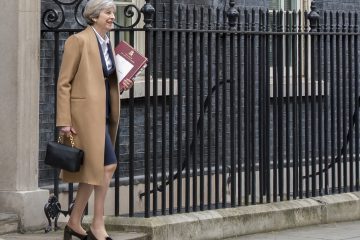
Prime Minister Theresa May’s Early Election Call and the Fixed-term Parliaments Act
Theresa May has this morning announced that she intends to call a general election on June 8 in a bid to increase the size of her parliamentary majority and to reduce the ability of opposition parties to extract concessions from the government during Brexit negotiations. This raises the question of how she plans to achieve the election, given that the Fixed-term Parliaments Act (2011) removed the Prime Minister’s ability to trigger general elections. Under the Act, an early election can only be called under two conditions; (i) if the government is defeated in a vote of no confidence and parliament does not vote to express confidence in a government within two weeks, or (ii) if a two-thirds parliamentary majority endorses …
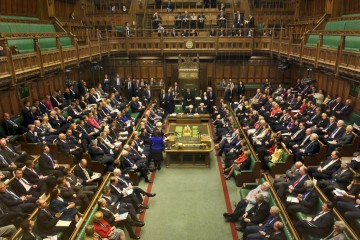
Scotland, Wales and Ireland point to how governments should be formed in hung parliaments
Nicola Sturgeon and Carwyn Jones have this week been re-elected as First Ministers of Scotland and Wales, whilst two week ago Enda Kenny was re-elected as Irish Taoiseach. In each case the newly elected parliament elected the head of the new government. In a new report Petra Schleiter, Valerie Belu and Robert Hazell argue that a similar procedure should be adopted at Westminster, where currently the Queen decides who should be Prime Minister before parliament meets. Robert Hazell explains why. This week has seen the re-election of Nicola Sturgeon and Carwyn Jones as First Ministers in Scotland and in Wales, following the devolved elections on 5 May. Two weeks ago we witnessed the re-election of Enda Kenny as Taoiseach in Ireland, ten weeks after the Irish election …

May 2015: Who forms the UK government in the event of a hung parliament?
When several alternative governments are viable, negotiations are in practice guided by constitutional principles that determine which actors are asked to form the government and in what order. These principles are referred to as recognition rules in the field of comparative politics and they are often central in narrowing a range of potential government formation options decisively. In the UK, the prime minister designate is appointed by the sovereign and asked to form a government. The monarch is expected to discharge this role in government formation without becoming involved in any negotiations. This is not difficult when a single party commands an outright legislative majority so that the prime minister designate is directly identified by the election result. However, in hung parliaments, …

Why the UK needs improved caretaker conventions before the May 2015 general election
In 2010, the UK’s underspecified caretaker conventions caused the “Squatter in Downing Street” controversy, when Gordon Brown remained in office after Labour’s election defeat, pending the completion of the coalition negotiations. Pollsters predict another hung parliament in May this year and potentially protracted coalition negotiations. Yet, the country still lacks adequate rules to govern caretaker situations, which gives rise to considerable risks. Caretaker periods and their attendant challenges are universal to parliamentary democracies. The government’s mandate to exercise its executive powers stems from its ability to command the confidence of parliament. However, there are points in every parliament’s lifecycle when no government can lay claim to such support—between parliamentary dissolution and a general election; after a general election and before …
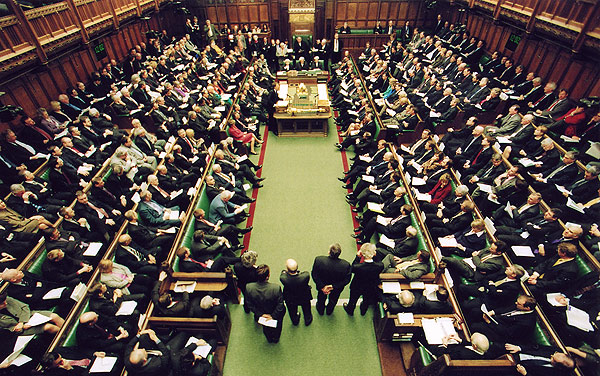
Why the Fixed-term Parliaments Act should not be repealed
The Coalition introduced the Fixed Term Parliaments Act in 2011. Now some Conservative MPs want to repeal the Act. But Fixed Term Parliaments are good for UK democracy and the Act should stay. When the current coalition government introduced the Fixed-term Parliaments Act in 2011, the case appeared compelling: The Government believes that fixed-term Parliaments will have a positive impact on our country’s political system; providing stability, discouraging short-termism, and preventing the manipulation of election dates for political advantage. (“Government response to the report of the House of Lords Constitution Committee on the Fixed-term Parliaments Bill”, 2011, Introduction) Now Tory MPs have changed their minds. This week a group of Tory backbenchers have been mounting a campaign to repeal the …










